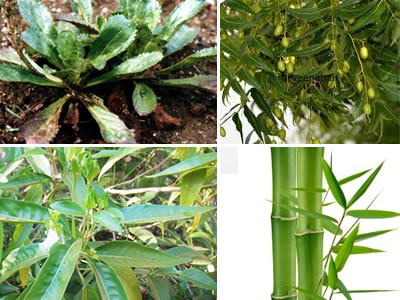In Ayurveda, pitta is “fire” dosha. Fire by nature is hot. But an excess of pitta dosha is often accompanied with dampness (over moisture or humidity). So pitta cough (Pitta Kasa) presents a hot-phlegm cough. When a person suffers from a pitta cough, the common symptoms may include the following: fever, inflammation, yellow mucous (phlegm), or possible blood in the mucous. The yellow color and blood indicate excessive internal heat (fire), and great amount mucous (phlegm) indicates dampness.
Treating pitta cough is complicated comparing to treat vata cough or kapha cough. It is not recommended to use hot and oily remedies. Though hot spices have drying properties, but they also increase fire. And though oily remedies usually have cooling properties, but they also increase dampness (mucous).
To treat a disease that has both “hot” and “wet” symptoms, cooling and drying remedies are needed. Ayurveda recommends to use bitter taste foods and herbs as the bitter taste has cooling and drying properties.
The remedies that Ayurveda recommends to treat pitta cough include:
– Bitter foods
– Light foods
– Virechana (a therapy to remove the pitta toxins from the body)
The herbs that Ayurveda uses to treat pitta cough include:
– Bamboo manna
– Vasa (Justicia adhatoda, Adhatoda vasica)
– Kutki (Gentian, Gentiana)
– Neem (Azadirachta indica)
You may also use the following herbs to treat hot-phlegm cough:
– Licorice
– Peppermint
– Chamomile
– Daisy
– Mullein
– Echinacea
– Eucalyptus
– Goldenseal
To learn how to treat vata cough (dry cough) with Ayurvedic remedies, go to this page:
Ayurvedic Remedies for Vata Cough – Indian Cures for Dry Cough
To learn how to treat kapha cough (wet cough) with Ayurvedic remedies, go to this page:
Ayurvedic Remedies for Kapha Cough – Indian Cures for Wet Cough
For more information about natural remedies for cough, go to Natural Remedies Center: http://www.naturalremediescenter.com/treat/cough/



